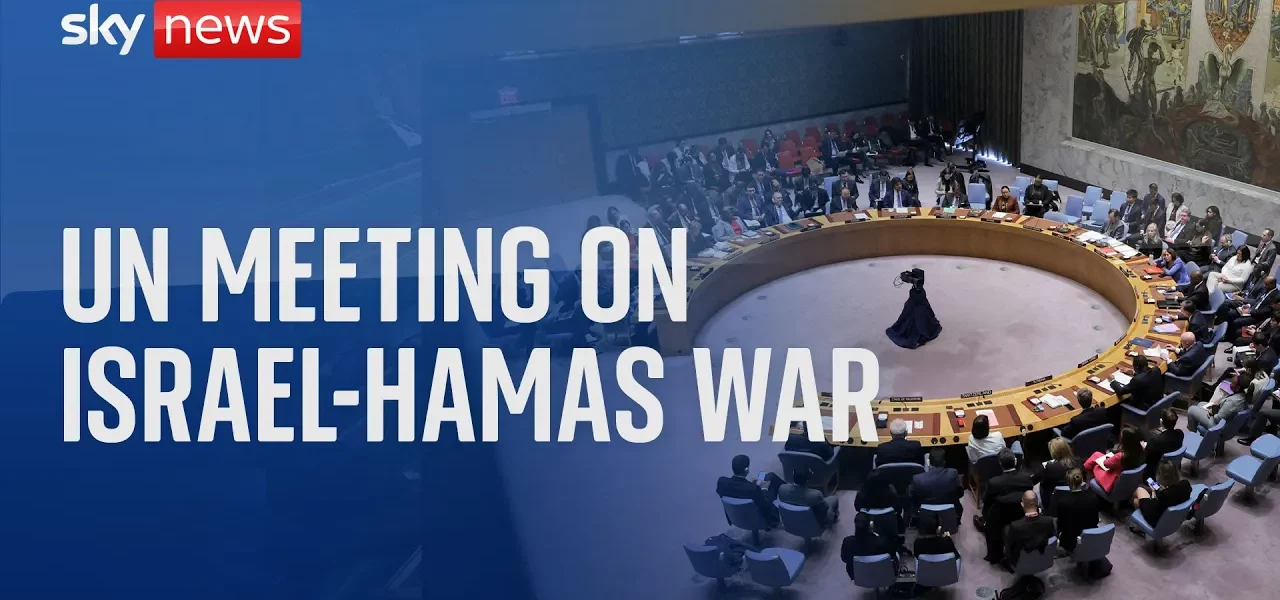Addressing Syria’s Chemical Weapons Program: International Perspectives and Actions

This article delves into the complex international discourse surrounding Syria’s chemical weapons program, highlighting the statements and actions taken by various nations at the UN Security Council. It underscores the need for accountability and the global commitment to preventing chemical weapon usage.
Introduction
The issue of chemical weapons in Syria has generated significant international concern since the onset of the Syrian civil war. Various nations have expressed their condemnation of chemical weapon usage and the failure of the Syrian government to comply with international disarmament obligations. This article explores the statements made by representatives from Algeria, Slovenia, France, Malta, Japan, Ecuador, China, the United Kingdom, the Republic of Korea, and others during recent discussions at the UN Security Council. The focus will be on the calls for accountability, the challenges faced in verifying Syria’s compliance, and the broader implications for international peace and security.
The Role of International Bodies
International bodies such as the Organization for the Prohibition of Chemical Weapons (OPCW) play a crucial role in monitoring and enforcing compliance with the Chemical Weapons Convention (CWC). The following subsections break down the key points raised by various countries regarding the OPCW’s role and responsibilities:
Importance of OPCW’s Work
Countries like Slovenia have commended the OPCW for its impartial and professional efforts in ensuring compliance with the CWC. Key highlights include:
- Continuous monitoring and investigations into chemical weapon usage.
- Resumption of consultations between the OPCW and Syrian authorities.
- Efforts to identify and hold accountable those responsible for chemical attacks.
Challenges Faced by the OPCW
Despite the OPCW’s efforts, significant challenges remain, including:
- Lack of access to necessary documentation from Syria.
- Unresolved discrepancies in Syria’s declarations concerning its chemical weapons stockpiles.
- Political obstacles that hinder transparent dialogue between the OPCW and the Syrian government.
Statements from Member Nations
During the discussions, various nations articulated their positions on Syria’s chemical weapons program, emphasizing the need for accountability and compliance:
Algeria’s Concerns
The representative of Algeria expressed frustration over the lack of access to essential documents necessary for effective participation in discussions. This highlights the ongoing obstacles faced in the pursuit of transparency and accountability, which are crucial for international peace.
Slovenia’s Firm Position
Slovenia reiterated its condemnation of chemical weapon usage, emphasizing that any violations must be met with accountability. The nation underscored the importance of Security Council meetings to address the ongoing issues regarding Syria’s chemical weapons program.
France’s Call for Transparency
France emphasized the necessity for Syria to comply with international obligations and to provide accurate declarations regarding its chemical weapons. This insistence on transparency is vital for regaining trust in the international community’s disarmament efforts.
Japan’s Commitment to Accountability
Japan reaffirmed its commitment to holding those responsible for chemical weapon usage accountable. It highlighted the OPCW’s findings as crucial in establishing the facts surrounding alleged chemical attacks in Syria.
United Kingdom’s Urgency for Action
The UK expressed grave concern over the Assad regime’s ongoing possession of chemical weapons and the lack of accurate declarations. The UK’s stance emphasizes the need for immediate action to prevent further violations and to maintain international non-proliferation efforts.
The Importance of Accountability
Accountability for the use of chemical weapons is a recurring theme in the discussions. The representatives highlighted several key aspects:
Justice for Victims
Countries underscored the moral obligation to seek justice for the victims of chemical weapon attacks. This includes:
- Identifying and prosecuting perpetrators.
- Providing support and recognition for survivors.
Preventing Future Use
Preventing the recurrence of chemical weapon use is essential. Nations called for:
- Strengthened international cooperation to deter future attacks.
- Increased transparency in disarmament processes.
- Enhanced monitoring and verification mechanisms.
Conclusion
In conclusion, the discussions surrounding Syria’s chemical weapons program reflect a complex interplay of international relations, accountability, and the imperative for compliance with disarmament obligations. The need for transparency and cooperation among nations is critical to addressing the ongoing threats posed by chemical weapons. As the international community continues to confront these challenges, the commitment to uphold the principles of the Chemical Weapons Convention remains paramount. It is essential for all member states to work collaboratively to ensure that chemical weapons are eradicated, and those responsible for their use are held accountable. We urge readers to stay informed and engaged in discussions on disarmament and international security.
For further reading on related topics, please explore our articles on Chemical Weapons Disarmament and International Security Efforts.
“`




